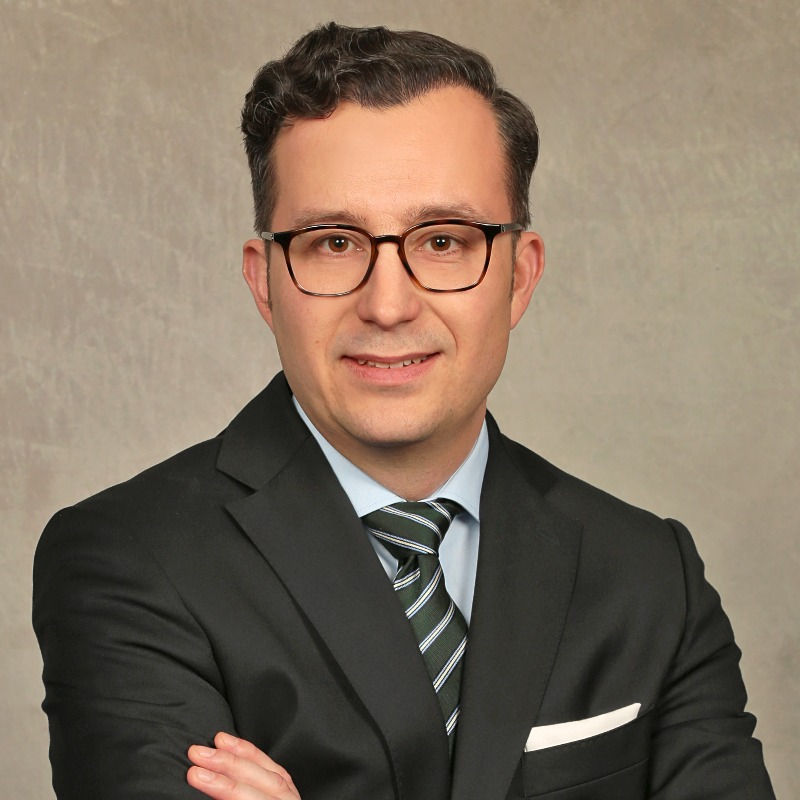
The chain reaction in which one Sahel state after another became the scene of military coups d'état was most likely to come to the attention of Western observers on the basis of European military operations in relation to the neighbouring country of Mali in 2021. There, 2023 marked the anniversary of the creation of both the UN mission MINUSMA and the EU training mission EUTM, both of which are on the brink of extinction following the coup d'état there. French troops will also withdraw their contingent from Niger by the end of this year. Its southern neighbour Burkina Faso was also the scene of such a coup in 2022, and now Niger followed in July 2023 with the ouster of elected President Bazoum. Thus, the central Sahel and ECOWAS states, as a project region for stability and counterterrorism, are the target of financially powerful EU investments, collectively under the rule of volatile and diplomatically difficult unreliable regimes.
As an unpeaceful crisis region at the intersection of the permanent conflicts over Al-Qaeda-affiliated groups from the north, IS offshoots from the central parts of West Africa and Boko Haram in the south, the Sahel is currently clearly overshadowed by media coverage of events in the Middle East. There is a threat of further deterioration in the security situation, the blueprint for which has been repeated regionally and, in the case of the barren desert and landlocked country, can also unfold its potential in its energy dependence on neighbouring countries. For example, Nigeria reduced its electricity exports to the north, a cut of 70 % of the electrical energy supplied.
In addition to the region's often-mentioned uranium deposits, its role as a transit country suggests further observation. Starting from an economically weak, but democratically and internationally legitimized status quo of the absence of major armed conflicts, basic expectations of the median extremely young population have not been met.
Youth unemployment and a general lack of prospects, coupled with terrorist attacks, have created fertile ground and personnel for subversive movements. Years of Western, especially French, presence have not had a positive effect on development. Coupled with inherited antipathies from the colonial era, this reinforced anti-French attitudes.
Against this background, the approval of the coup is understandable. It is unlikely that the new leadership will enjoy long-term support among the population. In early October, 29 soldiers were killed in a massive jihadist attack on the border with Mali. Already in August, 17 soldiers had been killed in a similar attack, and more attacks will undoubtedly follow. It does not take any prophetic skills to see the support for the military dictatorship waning after such repetitions and the next violent takeover of the government looming. What scenarios are now emerging for the region?
After a break with the former colonial power, a rapprochement not only with it but also with the EU as a whole is unlikely. Unlike in Mali, China's economic involvement is currently smaller and is essentially limited to the oil fields of Agadem through the state oil company PetroChina. Russian influence, on the other hand, is not only economic. Long before the coup, Moscow exerted propaganda influence in the country, deliberately appealing to existing anti-French resentment and, unlike in Mali, initially refraining from sending paramilitaries, even though the junta itself called them into the country in August to stabilize its rule. Prigoshin's death means that at least the Wagner Group will hardly make its presence felt. The withdrawal of not only French forces but also the corporations, in turn, leaves room for Russian prospecting activities, especially for the aforementioned uranium. The current focus of world public attention on the Middle East provides additional space for Russian activities under the radar of media interest.
In the medium term, sub-Saharan Africa could be divided into economic spheres of interest between the main players, Russia and China. This represents the much-cited neo-colonialism in its purest form. The volatile regimes, currently especially those in the Sahel, are particularly suitable for bilateral agreements on the exploitation of raw materials with simultaneous short-term financial and military-logistical benefits. This division would no longer stop at national borders, but would also differentiate between the goods to be extracted.
In dealing with those currently in power in Africa, European actors have little more to offer than the hopeful expectation of a welcome change of government, ideally a return to democracy. Jihadist forces, while active throughout the region, do not have much support. Disillusionment with the militia government is to be expected. Material support for the regular armed forces and the resulting increase in the region's weapons arsenal, which cannot be controlled even in the short term, is currently the worst possible reaction.

Christoph Pazdzior (*1985) has a PhD in Educational Sciences from Hamburg Military University and a master´s degree in HR. He is an Officer of HUMINT and army intelligence and completed missions in Western Africa and the Balkans. Currently, he serves at the Cologne Army Concepts and Capabilities Development Centre in the field of Army training doctrinal development. His main field of interest is the EU Common Security and Defense Policy, particularly regarding Africa.

Commentaires